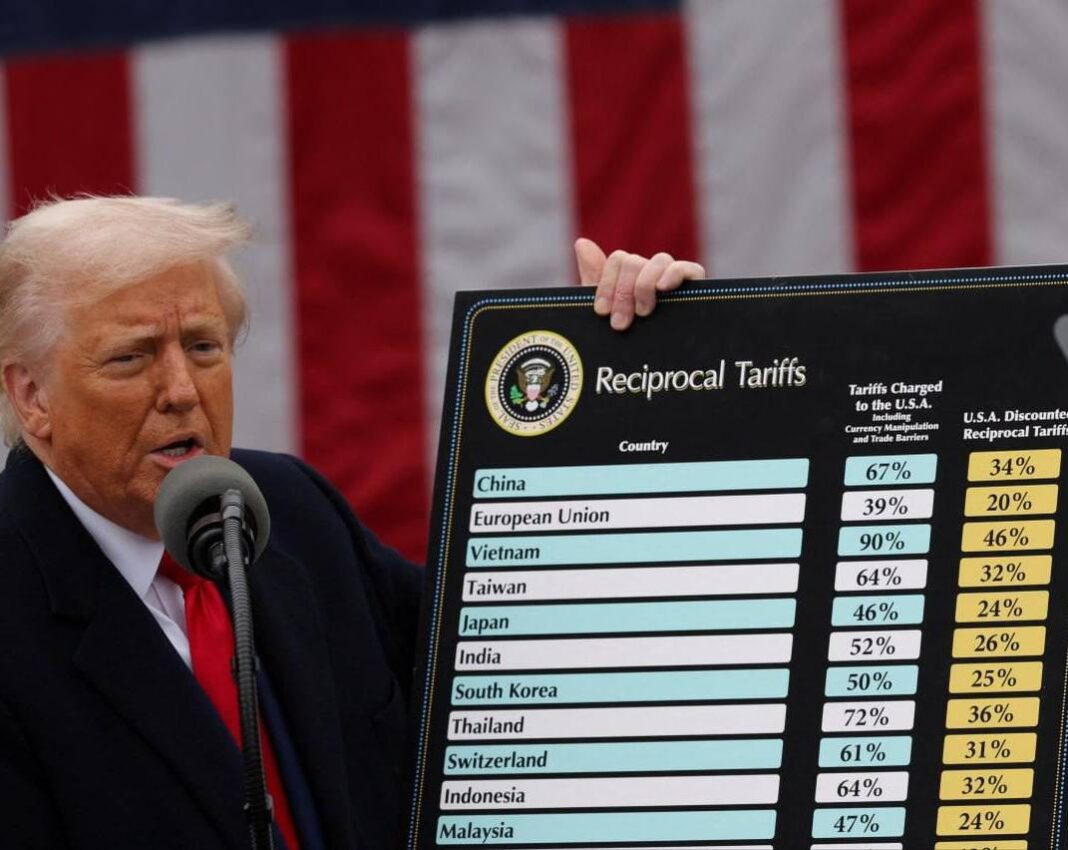By Johnathan Paoli
The Presidency has expressed deep concern over the newly imposed tariffs on its exports to the United States, following an announcement by President Donald Trump on Wednesday.
It criticised the unilateral nature of the tariffs, describing them as “punitive measures” that hinder trade and shared economic prosperity.
“Whilst South Africa remains committed to a mutually beneficial trade relationship with the United States, unilaterally imposed and punitive tariffs are a concern and serve as a barrier to trade and shared prosperity,” it said in a statement on Thursday.
The tariffs, which include a 30% levy on South African goods, are part of a broader policy targeting several nations, with Trump citing trade imbalances and national security concerns.
The presidency further emphasised the need for urgent negotiations to establish a new, fair bilateral trade agreement that would ensure long-term stability in economic relations between the two nations.
“The tariffs affirm the urgency to negotiate a new bilateral and mutually beneficial trade agreement with the U.S, as an essential step to secure long-term trade certainty,” the statement read.
Trump’s announcement introduced a global 10% base tariff on all imports, with additional tariffs on foes and allies alike.
South Africa was singled out alongside China, the European Union, India and Japan, with Trump asserting that these nations imposed disproportionate tariffs and barriers on US goods.
Additionally, a 25% tariff announced recently on automotive imports is expected to hit the country’s vehicle manufacturing industry hard.
The sector has long benefited from the African Growth and Opportunity Act, which grants duty-free access to U. markets.
The new tariffs threaten to erode this advantage, posing a significant challenge to South African car manufacturers and suppliers.
In a fact sheet accompanying the announcement, the White House justified the tariffs by accusing South Africa of maintaining “unjustified animal health restrictions” on US pork and poultry imports.
The document claimed these restrictions contributed to a drastic 78% decline in US poultry exports to South Africa from $89 million in 2019 to $19 million in 2024.
Trump’s latest trade measures come amid escalating tensions between Washington and Pretoria.
The Trump administration has been openly critical of some of South Africa’s policies, particularly the recently enacted land Expropriation Act.
His administration has also withdrawn an estimated $8 billion in annual HIV/AIDS funding to South Africa, exited the Just Energy Transition Partnership, reneging on a $1.5 billion pledge, and expelled former South African ambassador to the US, Ebrahim Rasool.
During his Rose Garden address, Trump defended the tariff increases.
“South Africa, oh, they’ve got some bad things going on. We’ve been paying them billions of dollars, so we cut the funding because a lot of bad things are happening in South Africa,” he said.
Trump further justified his approach by claiming that foreign trade practices had led to economic disadvantages for the United States, necessitating “reciprocal tariffs to strengthen the international economic position of the United States and protect American workers”.
He also suggested that countries affected by the tariffs could seek exemptions by relocating production to the US.
The announcement had an immediate economic impact, with the South African rand plummeting against the dollar and other major currencies.
On Thursday morning, the currency was trading at R18.92 to the dollar, reflecting market fears over deteriorating US-South Africa trade relations.
In response, the South African government has called for urgent negotiations to establish a more balanced trade agreement.
The Presidency emphasised that South Africa remained open to discussions to prevent further economic fallout.
With Trump’s tariffs set to take effect on 9 April, South Africa faces a critical diplomatic and economic challenge.
INSIDE POLITICS

